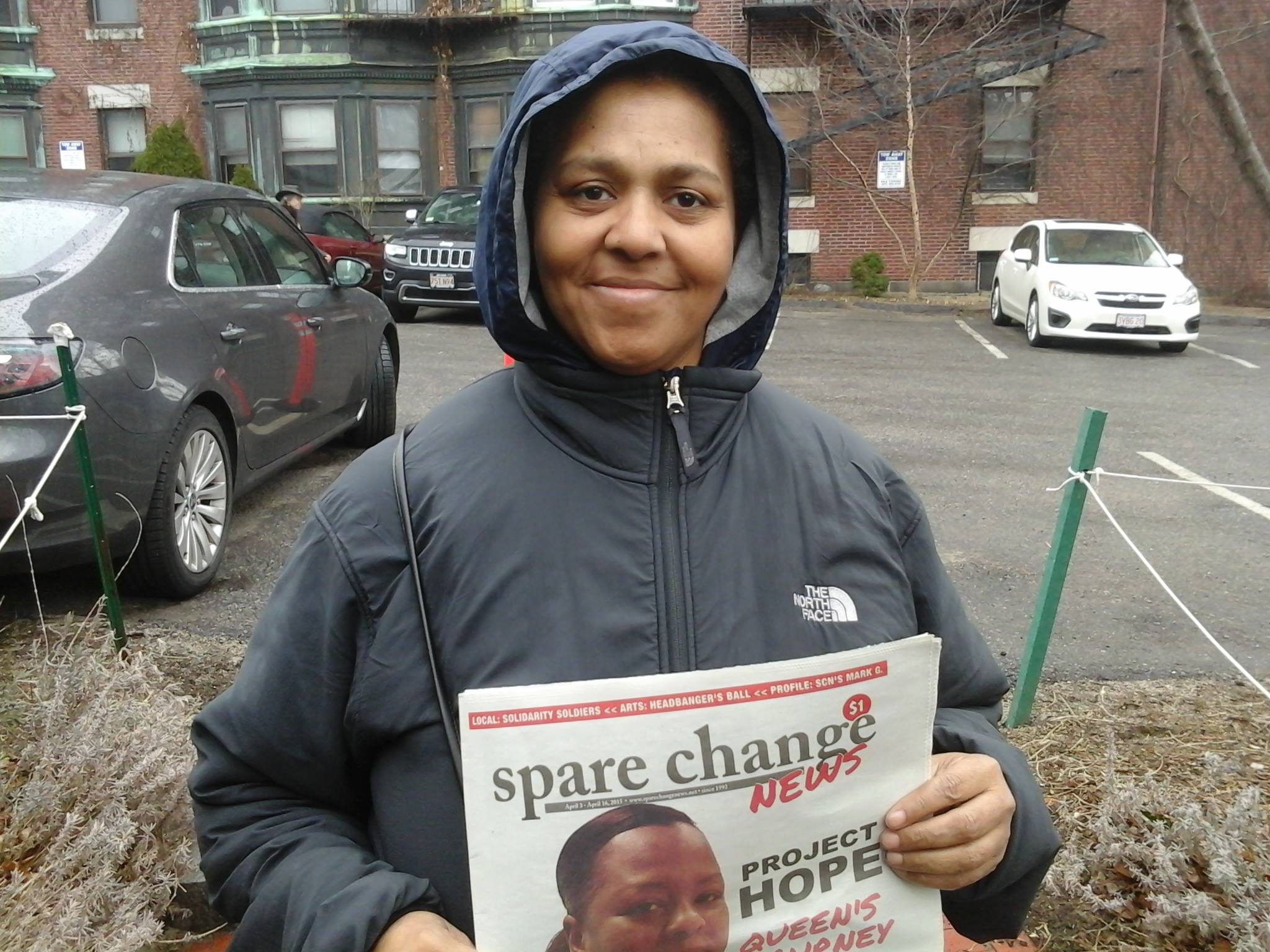It’s the morning of Good Friday at Spare Change News, and Beatrice Bell, one of the newspaper’s longest-serving reporters, is telling me an amazing story. At the age of seven, after a terrible asthma attack, she found herself having one of those life-changing experiences that are called, in the literature, “near-death.”
For three days, which felt like minutes, this seven-year-old girl lay unresponsive in the hospital while, somewhere on the inside or, perhaps, out there, she was floating among clouds with a man who looked like Jesus.
Since that experience, Beatrice has become a writer, penning countless articles for Spare Change News and many poems in her youth—but she’ll never forget that day.
“The nurses and doctors were working on me,” she recalls, “but I wasn’t breathing. The next thing I know… there was nothing but clouds. After a couple of minutes, I noticed there was a bridge and a man.”
While Beatrice was hovering somewhere between life and death, the man who resembled Jesus told her she had a choice.
She could either cross the bridge and stay in heaven or return to her mother and father in the hospital. The man explained to her what heaven was really like, and what happens to all the people, recently deceased, who find themselves traveling toward a bright white light. Today, she calls that light the “Sun in Zion” and says she thinks it shines on all the souls in heaven.
The fact that Beatrice is sitting in front of me now is proof of the choice she made. It’s thanks to that choice that Spare Change News has a stellar reporter: Beatrice has written numerous social justice-focused articles for the paper, beginning with her first story on the Massachusetts Affordable Housing Alliance in 1994 and continuing with her latest story on Johnniemae James, a homeless woman staying at the Woods-Mullen shelter, in one of the March issue of Spare Change News.
“I find a lot of my stories at Rosie’s Place,” she says, referring to the first—still operating—women’s shelter in the country. “I find things to write about all the time. Some of it comes out really slow.”
Although it’s not something she’s done very much lately, she’s also written poems. One of her poems, called “The Tree of Life,” was all about her near-death experience as a child. Many people have said that near-death experiences sensitize people to the spiritual dimension, but I’m curious about the relationship to her poetry.
“I did write about it when I got older,” she says, pointing out that “you can’t be the same” after that kind of experience. “You see things very differently,” she adds.
When I ask her where that poem is now, she tells me it’s lost. Sadly, Beatrice lost all her poems around the time she was made homeless and had to move to West Roxbury. “I had my poems in a box,” she recalls. “The movers took it and I don’t know what happened to it. When I got to storage, the poetry wasn’t there. I had a lifetime of poems in that box.”
Whatever your beliefs about the afterlife may be, Beatrice’s brush with the transcendent has clearly had a major impact on her life. If only that poem, “The Tree of Life,” had not been lost. What a glimpse it might have been into a place not many return from—the border between life and death.
Nevertheless, Beatrice is as grounded as she is mystical and remains focused on the present. She has pressing issues to write about for Spare Change News—in particular, affordable housing in the city of Boston, an issue she’s especially passionate about. She tells me about a future article she wants to write: “Abusive Landlords in a Human Rights City.”
“I’ve still got facts and details to check,” she says, “but it’s close to my heart.”

Leave a Reply
You must be logged in to post a comment.